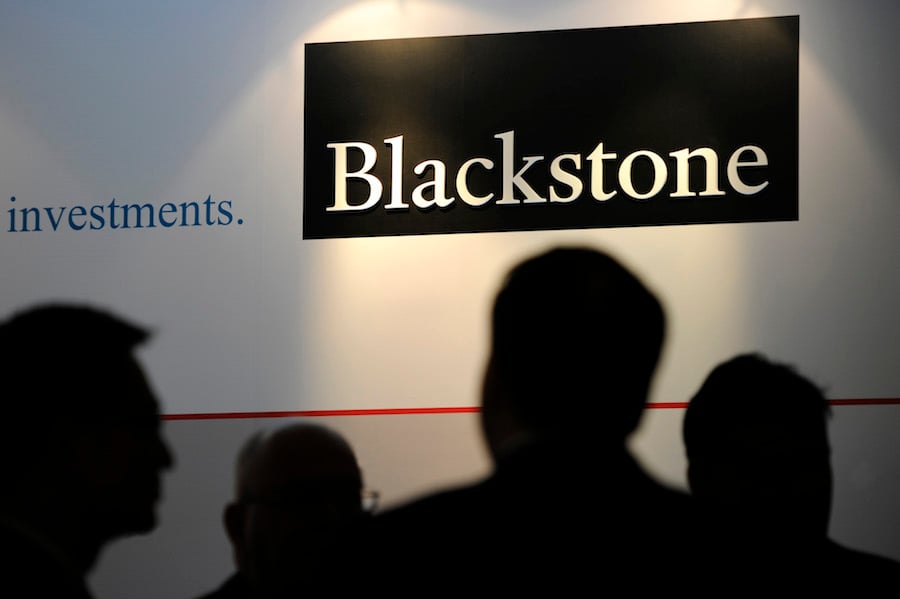

Blackstone Inc.’s $69 billion real estate fund for wealthy individuals said it will limit redemption requests, one of the most dramatic signs of a pullback at a top profit driver for the firm and a chilling indicator for the property industry.
Blackstone Real Estate Income Trust Inc. has been facing withdrawal requests exceeding its quarterly limit, a major test for the one of the private equity firm’s most ambitious efforts to reach individual investors. The news, in a letter Thursday, sent Blackstone stock falling as much as 10%, the biggest drop since March.
“Our business is built on performance, not fund flows, and performance is rock solid,” a Blackstone spokesperson said, adding that BREIT’s concentration in rental housing and logistics in the Sun Belt leaves it well positioned going forward. This year, the fund has piled into more than $20 billion worth of swaps contracts through November to counteract rising rates.
The fund has become a behemoth in the real estate industry since its start in 2017, snapping up apartments, suburban homes and dorms and growing rapidly in an era of ultra-low interest rates as investors chased yield. Now, soaring borrowing costs and a cooling economy are rapidly changing the landscape for the fund, causing BREIT to caution that it could limit or suspend repurchase requests going forward.
Blackstone’s creation of BREIT cast a spotlight on the space for nontraded real estate investment trusts. Unlike many real estate investment trusts, BREIT’s shares don’t trade on exchanges. It has thresholds on how much money investors can take out to avoid forced selling. This means that if too many people head for the exits, its fund board can opt to restrict withdrawals or raise its limits. BREIT said requests have exceeded the 2% of the net asset value monthly limit and 5% of the quarterly threshold.
“If BREIT receives elevated repurchase requests in the first quarter of 2023, BREIT intends to fulfill repurchases at the 2% of NAV monthly limit, subject to the 5% of NAV quarterly limit,” BREIT said in a letter Thursday.
Blackstone’s top executives have bet big on the fund. Bloomberg reported last month that President Jon Gray had put $100 million more of his own money in BREIT since July, as had Chief Executive Steve Schwarzman, a person familiar with the matter said at the time.
In the past year, rich individuals, family offices and financial advisers have become more cautious about tying up money in assets that are hard to trade and value. At UBS Group, some advisers have been reducing exposure to BREIT. A major chunk of redemptions for the fund has come out of Asia this year, said a person familiar with the matter who asked not to be identified citing private information.
“The BREIT outflow bear case is playing out, impacting shares this morning, and we expect it to remain an overhang on shares in the coming quarters,” Michael Brown, an analyst at Keefe Bruyette & Woods, said in a note Thursday titled “The Gates are Going Up.”
“Growth of the retail channel has been a key driver of BX’s success in recent years and the growth challenges facing the company on the retail side could continue to weigh on BX’s valuation,” Brown said.
The Blackstone move is the latest sign of a slowdown for the real estate industry. Soaring borrowing costs have caused many landlords to struggle with refinancing and even led banks to explore potential sales of U.S. office loans. On the residential side, the housing market has slowed extensively.
Higher costs of debt have forced Blackstone to readjust valuations on some BREIT holdings and are thinning returns for the fund. For this year through October, a major share class of the fund delivered 9.3% net returns. That compares to 13.3% one-year returns.
Still, BREIT’s returns are outperforming those of the S&P 500 Index. The fund is heavily concentrated in urban warehouses and rental housing, areas Blackstone deal-makers believe will provide strong cash flows in a downturn. Separately on Thursday, the firm announced it is offloading its stake in two Las Vegas hotels in a deal that frees up cash for BREIT.
The Las Vegas deal values the properties at $5.5 billion and is expected to generate roughly $730 million in profit to BREIT shareholders, according to a person familiar with the matter who asked not to be identified citing private information.

Executives from LPL Financial, Cresset Partners hired for key roles.

Geopolitical tension has been managed well by the markets.

December cut is still a possiblity.

Canada, China among nations to react to president-elect's comments.

For several years, Leech allegedly favored some clients in trade allocations, at the cost of others, amounting to $600 million, according to the Department of Justice.
Streamline your outreach with Aidentified's AI-driven solutions
This season’s market volatility: Positioning for rate relief, income growth and the AI rebound
